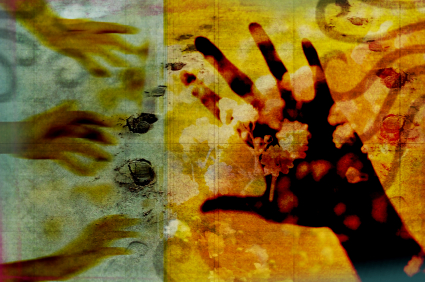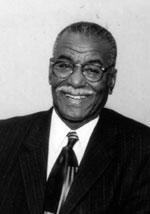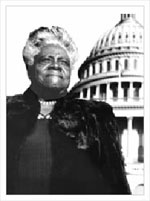Cultural Resources

STEWARDSHIP (VOLUNTEERISM—TITHING YOUR TIME)
CULTURAL RESOURCES
Sunday, July 19, 2009
Bernice Johnson Reagon, Lectionary Team Cultural Resource CommentatorLection: Isaiah 6:1-8
(v. 8) Then I heard the voice of the Lord saying, “Whom shall I send? And who will go for us?” And I said, “Here am I. Send me!”
I. Etymology of Terms
“‘Voluntary’ from the Latin voluntarius ‘of one’s free will,’ from voluntas ‘will,’ from the ancient accusative singular prp. of velle ‘to wish.’ Originally of feelings, later also of actions (c.1449).”1
“Volunteer,” from c.1600, “‘one who offers himself for military service,’ from M.Fr. voluntaire, noun use of adj. meaning ‘voluntary,’ from L. voluntarius ‘voluntary, of one’s free will’ (see voluntary).” The non-military definition is first recorded in 1638, the key meaning, “of one’s free will.”2
The word “steward” takes us to the notion of guardian, officer in charge, one who manages the affairs, and then to stewardship and the idea of the quality of management or guarding.3
This lectionary offering asks us to think about the manner in which we give our time to the work of the church and, thus, to the community. This work that cries out for our time and attention is not satisfied with money or wages, but by one’s willingness to serve by giving of their time and talent.
African American Traditional Chant
I’ll----- go------------------
I’ll----- go------------------
I’ll----- go------------------
I’ll----- go------------------
If the Lord wants somebody
Here am I
Lord I’m willing
I’ll----- go ------------------
II. Tithing Your Time: Bethel AME Church, Circa 1980s
During the 1980s, Sweet Honey in the Rock, the a cappella ensemble I formed in 1973, was approached by a women’s group from the Baltimore Bethel African Methodist Episcopal (AME) Church, then pastored by the Rev. John Bryant (now Bishop John Bryant).4 As we worked with creating a sacred production of music and text by Oprah Winfrey, then a local television anchor and member of the congregation, I became interested in the church because of the way the women talked about their congregation. I remember one of the women saying in response to hearing us describe our work in Sweet Honey in the Rock, “I feel like being in my congregation is like an African house party.” I understood that she was describing a new celebratory energy that was a part of her personal spiritual stewardship because of what was happening within that congregation.
After a very successful project, I continued to wonder about the ministry that was Bethel in Baltimore, and decided to visit Sunday services. On the first Sunday I attended, I saw on the front lawn of the church a sign that said, “Aluta Continua,” signaling support for the international struggle against apartheid in South Africa. Rev. Cecelia Bryant, wife and co-pastor with Rev. John Bryant, and Rev. Bryant were in the pulpit. There were cords of Kente in their robes. As the service unfolded, I listened as the African Methodist Episcopal (AME) congregation worshiped in a learning style with songs from the gospel genre, complete with a pianist and a tambourine player who were out of the Pentecostal shout tradition. At one point in the service, Rev. Bryant came to the pulpit with a stack of cards in his hands and he called for the “tithing of time” and, to my amazement, a line began to form. Congregants got out of their seats and formed a line that reached out of sight down the aisle of the church. Rev. Bryant ran out of cards well before he ran out of members who were seeking to serve those in need through this very special church mission.
The church operated a food and clothes pantry, and there were other services available to those with special needs in the immediate community. Each card had the name of a person in the community who needed personal contact: a visit, a call, transportation, etc. Without knowing who they would assist or what task they would perform, the members who stood in that line offered themselves as missionaries to give of their time to personally touch the lives of those who had come to the attention of the church in need of individual support. I was so moved that I went to Rev. Bryant after the service and asked him if there was such a church in Washington, D.C., for I wanted to be in a church like that.5
III. Rev. Fred Shuttlesworth - Tithing Your Time to the Movement
The following information comes from the website www.TheHistoryMakers.com:

One of the most relentless figures of the Civil Rights Movement,
the Rev. Fred Lee Shuttlesworth was born on March 18, 1922, in Montgomery County, Alabama. His biological father was Vetta Green. However, Shuttlesworth was reared by his mother, Alberta Robinson Shuttlesworth and his stepfather, William Nathan Shuttles- worth, a farmer in rural Oxmore, Alabama. Shuttlesworth mentioned to me that he had strong mentors in school, beginning with Israel Ramsey at Oxmore Elementary School. Fred married Ruby Keeler, a nurse, in 1941 and, after a few years as a truck driver and auto mechanic, Shuttlesworth was encouraged by Rev. E.A. Palmer to attend Cedar Grove Academy, a local bible college. He completed the A.B. degree at Selma, and later attended Alabama State College. By 1950, Shuttlesworth was the pastor of First Baptist Church in Selma, Alabama, and in1953, he returned to Birmingham as pastor of Bethel Baptist Church.
In May 1956, at a mass meeting at Bethel, Shuttlesworth established the Alabama Christian Movement for Human Rights (ACMHR). In December of that year, the United States Supreme Court ruled that bus segregation in Montgomery, Alabama, was illegal. Shuttlesworth immediately announced that the ACMHR was going to test segregation laws in Birmingham. On Christmas night the Shuttlesworth house was blown up by sixteen sticks of Ku Klux Klan dynamite. Shuttlesworth, who landed in the basement and whose bedroom was blown apart, and Deacon Charles Robinson who was visiting were unharmed. Shuttlesworth, then, led a rally the very next day.
He was beaten by police in 1957 for trying to enroll his daughter in an all white school and that same year joined with Dr. Martin Luther King Jr., Ralph David Abernathy and Bayard Rustin to form the Southern Christian Leadership Conference (SCLC) … Shuttlesworth was hospitalized in 1963 as a result of being attacked by Sheriff Bull Connor's water cannons as he led a mass non-violent demonstration. However, Shuttlesworth continued to work to secure Birmingham’s public accommodations and the desegregation of its schools.
In 1966, Shuttlesworth became the pastor of the Greater New Light Baptist
Church in Cincinnati, Ohio and served as founding director of the Shuttles-
worth Housing Foundation.6
Reverend Fred Shuttlesworth, February 1, 1980, Smithsonian Institution: A Special Example of Tithing Your Time and Stewardship:
Introduction by Dr. Vincent Harding:Reverend Shuttlesworth gives his Testimony: His Faith and Bull Conner
Leadership, Support and Protection
One day I was leaving a meeting, I was just about to step into my car and John L. Lewis pulled me out of the car. I asked him why he did it and he said, “If there is a bomb let me die, we need you.” Right then I knew that if someone was willing to give his life to save mine that I had to be fully committed to the struggle. They guarded my house for four years. I never seek to take credit, because God put me in the position of leadership. You have to lead, or get out of the way.
You Cannot Wait for Everyone to Volunteer
I hate to tell you this but 99 and 44/100s of the people voted against the movement saying just leave it alone and it will die. But if you are not willing to go, then get out of the way. The black church has to purify this democracy. The best preachers preach on Sunday and picket on Monday. We are in a divine struggle for the purification and preservation of the human race, and we must learn to live together or we will die apart.7
Rev. Shuttlesworth ended his presentation with his theme song, “All The Way.” It says:
Use me, Lord, in thy service
Draw me nearer, Lord, everyday
I'm willing to run all the way
If I falter while I'm trying
Don't be angry, just let me stay
I'm willing to run all the way
All the way, all the way
Draw me nearer, Lord , everyday
If I falter while I’m trying
Don’t be angry, just let me stay
I’m willing, willing to run on all the way.8
IV. Dr. Mary McLeod Bethune – A Life of Volunteerism
The following information about Dr. Bethune comes from the website of the school she founded—Bethune Coookman.9
 Born on a farm near Mayesville, South Carolina in 1875, Mary McLeod
Born on a farm near Mayesville, South Carolina in 1875, Mary McLeod
Bethune, the 15th child of former slaves, rose from humble beginnings to
become a world-renowned educator, civil and human rights leader, champion
for women and young people, and an advisor to five U.S. presidents.
Education was the first step in her remarkable journey. The young Mary
McLeod worked in the fields alongside her parents and siblings, until she
enrolled at the age of 10 in the one-room Trinity Presbyterian Mission School. There, she learned to read, and, as she later noted, “the whole world opened to me.” She went on to study at Scotia Seminary in North Carolina and Moody Bible Institute in Chicago with the goal of becoming a missionary. [She taught] first at the Haines Institute in Augusta, Georgia and then at the Kendall Institute in Sumpter, South Carolina, where she met and married Albertus Bethune. [At the dawning of a new century,] [t]he dream of opening her own school took Mary McLeod Bethune to Florida – first to Palatka and then to Daytona Beach, where she started [a school on the remains of a garbage dump. This school, which opened with five students,] would become Bethune-Cookman University.
As she worked to build the school that she founded, she also became a national leader on issues related to civil rights, education, women and young people. As president of the State Federation of Colored Women’s Clubs, she organized the group to fight against school segregation and inadequate healthcare for black children. She later served as president of the prestigious National Association of Colored Women’s Clubs (NCNW) and founded the National Council of Negro Women. She was appointed to numerous national commissions including the Coolidge Administration’s Child Welfare Conference, the Hoover Administration’s National Commission on Child Welfare and Commission on Home Building and Home Ownership. She eventually became an advisor on minority affairs in the Roosevelt Administration, organizing two national conferences on the problem of black Americans.
Wherever Dr. Bethune saw a need, she found a way to meet that need and move society closer to her vision. When a black student was turned away from the hospital in Daytona Beach, she opened a hospital to serve the black community. When the nation mobilized resources for the first and second World Wars, she pressed for the integration of the American Red Cross and Women's Army Auxiliary Corps. She led voter registration drives and anti-lynching campaigns.
Through it all Dr. Bethune relied on faith and prayer for guidance and inspiration, saying, “Without faith, nothing is possible. With it, nothing is impossible.” Mary McLeod Bethune’s vision lives on today at the school that she founded which continues to sustain her legacy of faith, scholarship and service.
In 1974, Mrs. Bethune became the first Black leader and the first woman to have a monument, the Bethune Memorial Statue, erected on public park land in Washington DC in honor of her remarkable contributions. She also became the only Black woman to be honored with a memorial site in the nation's capital in 1994 when National Park Service acquired the Council House, Bethune’s last official residence and the original headquarters of NCNW. Today, the Council House offers a variety of educational programs and exhibits.
Mary McLeod Bethune's legacy of education, civil rights, and leadership continues to endure. Since 1943, Bethune-Cookman College has graduated more than 13,200 students. In addition, the college offers bachelor's degrees in 26 major areas.
Of her inheritance, she wondered what she had to leave those of us who would follow.
…Sometimes as I sit communing in my study I feel that death is not far off. I am aware that it will overtake me before the greatest of my dreams – full equality for the Negro in our time – is realized. Yet, I face that reality without fear or regrets. I am resigned to death as all humans must be at the proper time. Death neither alarms nor frightens one who has had a long career of fruitful toil. The knowledge that my work has been helpful to many fills me with joy and great satisfaction.10
Mary McLeod Bethune wrote her Last Will and Testament to her people. She closed this extraordinary document with a call to serve the development and cultivation of the younger generation:
I leave you finally a responsibility to our young people. The world around us really belongs to youth for youth will take over its future management. Our children must never lose their zeal for building a better world. They must not be discouraged from aspiring toward greatness, for they are to be the leaders of tomorrow. Nor must they forget that the masses of our people are still underprivileged, ill-housed, impoverished and victimized by discrimination. We have a powerful potential in our youth, and we must have the courage to change old ideas and practices so that we may direct their power toward good ends.
Faith, courage, brotherhood, dignity, ambition, responsibility -- these are needed today as never before. We must cultivate them and use them as tools for our task of completing the establishment of equality for the Negro. We must sharpen these tools in the struggle that faces us and find new ways of using them. The Freedom Gates are half-ajar. We must pry them fully open.
If I have a legacy to leave my people, it is my philosophy of living and serving. As I face tomorrow, I am content, for I think I have spent my life well. I pray now that my philosophy may be helpful to those who share my vision of a world of Peace, Progress, Brotherhood, and Love.11
V. Conclusion
Use Me
Chorus:
If you can use anything Lord, You can use me
If You can use anything Lord, You can use me
Take my hands Lord and my feet
Touch my heart Lord, speak through me
If You can use anything Lord, You can use me.12
Notes
1. “Voluntary.” Online Etymology Dictionary. 2001. Online location: http://www.etymonline.com/index.php?term=voluntary accessed 18 February 2009
2. “Volunteer.” Online Etymology Dictionary. 2001. Online location: http://www.etymonline.com/index.php?search=volunteer&searchmode=none accessed 18 February 2009
3. “Steward.” Online Etymology Dictionary. 2001. Online location: http://www.etymonline.com/index.php?search=steward&searchmode=none accessed 18 February 2009
4. Bishop John R. Bryant is the Senior Bishop and Presiding Prelate of the Fourth Episcopal District of the African Methodist Episcopal Church in the United States of America.
5. “Rev. Fred L. Shuttlesworth Biography.” The History Makers. Online location:
http://www.thehistorymakers.com accessed 18 February 2009
6. Voices of the Civil Rights Movement /All The Way: Rev Fred Shuttlesworth, a video at www.voicesofcivilrights.org accessed 18 February 2009
7. Ibid.
8. Pilgrim Travelers. "All the Way(I’m Willing to Run)." Online location: http://www.rhapsody.com/player?type=track&id=tra.1300279&remote=false&page=&pageregion=&guid=&from=&hasrhapx=true&__pcode=cj accessed 18 February 2009
9. “Our Founder - Dr. Mary McLeod Bethune.” Bethune-Cookman University. Online location: http://www.cookman.edu/about_BCU/history/our_founder.html accessed 18 February 2009
10. “Mary McLeod Bethune.” National Council of Negro Women. Online location: http://www.ncnw.org/about/bethune.htm accessed 18 February 2009
11. “Dr. Bethune's Last Will & Testament.” Bethune-Cookman University. Online location: http://www.cookman.edu/about_BCU/history/lastwill_testament.html accessed 18 February 2009
12. Jones, Dewitt and Kim Jones. “Use Me.” Perf. by the Brooklyn Tabernacle Choir. Favorite Song of All. Burbank, CA: Warner Alliance, 1996.



